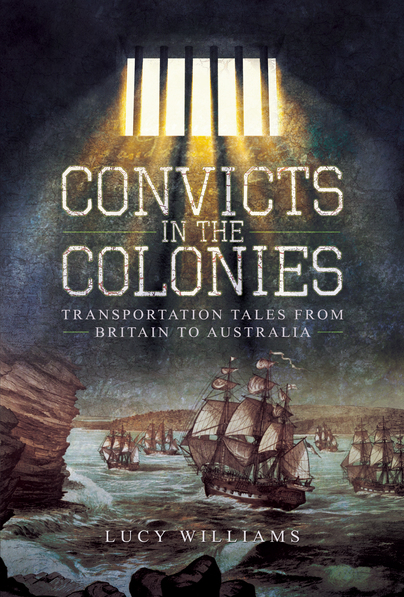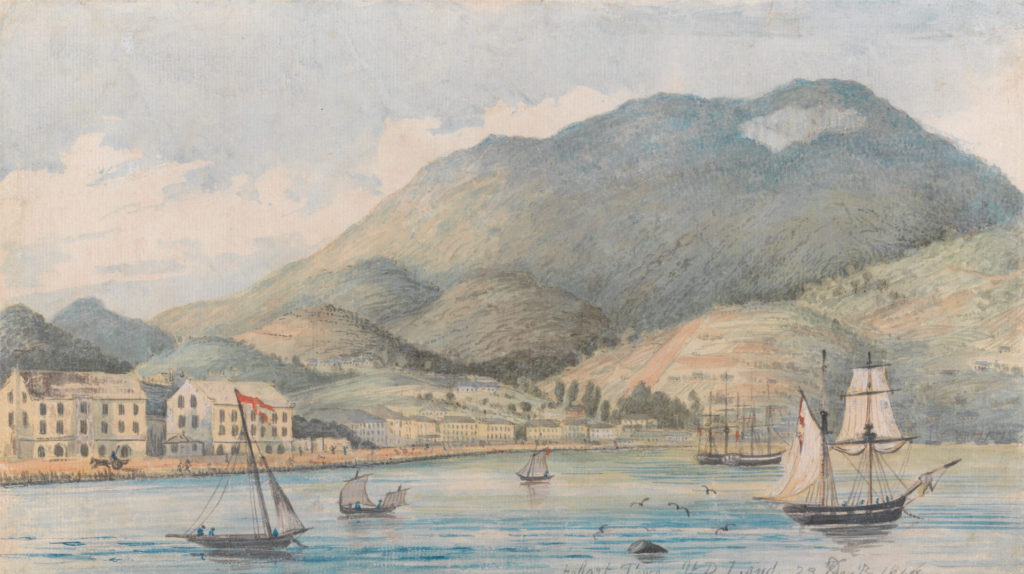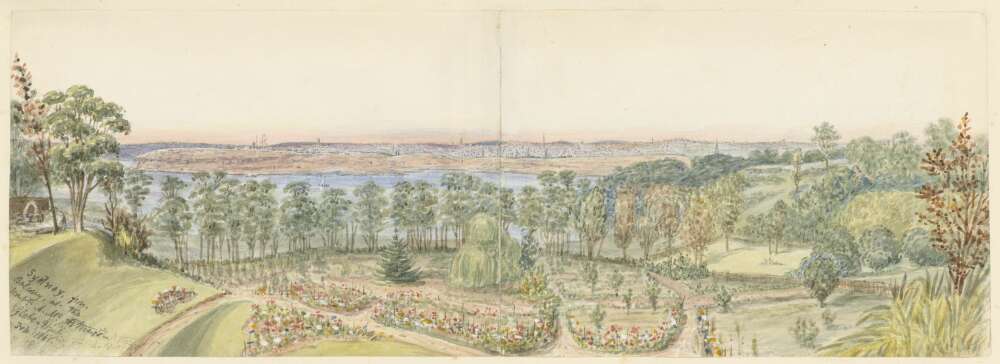Between 1787 and 1868 more than 160,000 criminal men, women and children were punished by being transported to the newly founded colonies in Australia. In her book Convicts in the Colonies Lucy Williams looks at the stories of a handful of these miscreants, many of whom had been born into poverty and were therefore predestined for criminality. She explores the whole process of transportation from sentencing to landing on the other side of the world, via the ‘living hell’ of the prison hulks and a hazardous voyage across treacherous oceans.

There are some surprises along the way. Not all prisoners sentenced to transportation actually left the country. You only got to go if you were likely to be useful. The old and the sick were discarded. Women, especially those of childbearing age, were prized. While many transportees hated their punishment (in some cases robustly calling for punishment on the gallows in preference), others were keen to start afresh far away, and a few committed crimes in the hope of being sent.

Lucy Williams highlights the individual stories of some of the convicts and, refreshingly, includes the experiences of a good number of women: Margaret Catchpole, who escaped Ipswich prison after her conviction for the capital crime of horse-stealing (her sentence was commuted twice, the second time for escaping from prison) and who wrote letters to her former employer vividly describing her new life; Mary Bryant, who escaped from Botany Bay with a band of other convicts, got as far as East Timor, was arrested and taken back to England to face justice; Mary Wade, convicted as a 10-year-old of ‘child-stripping‘ and who gave birth to 21 children; and Mary Reibey, who at the age of 13 had passed herself off as a boy while stealing a horse, and who went on to establish herself as a successful businesswoman in Australia.
Poor people in history tend to lack voice. There are few first-hand memoirs or diaries written by the poor and even fewer by convicts (Margaret Catchpole’s letters are a particularly precious exception). And the lives of the poor tend to be generalised. Convicts in the Colonies, by focusing on individuals’ stories and letting them speak, goes some way to rebalancing that.
This is not to say that accounts by more educated convict are not valuable or vivid. James Hardy Vaux was not a typical transportee. Born into a lower middle-class family, educated to the age of 14, he was more privileged than most who ended up in Australia. A strong liking for gambling, drinking — and, before long, stealing and scamming in order to fund his habits lead to repeated sackings but the crime that sent him across the ocean was the theft of a handkerchief.
Here he had a chance to start over, but he ruined it by returning to his old habits. He was simply too plausible. Those in authority would make the mistake of assuming that his educated demeanour meant that he was trustworthy and appoint him to positions of responsibility, where temptation would prove irresistible, he would transgress, get caught — and the whole cycle began again. Remarkably, in his criminal career, he ended up being transported three times.

Vaux’ story is just one of many in the book, which is the product of Williams’ four years of research looking at the history of transportation for the Digital Panopticon project. She clearly ‘knows her stuff’ so it pains me to offer a criticism. The book is let down by numerous copyediting errors and although its merits – readability and a wealth of information – outweigh this, they are irritating and unnecessary.
Even so, I recommend the book to anyone wanting a general background in the convict experience. Those researching a convict ancestor will find the the inclusion of a guide to resources particularly helpful.
Thank you to Pen & Sword for the review copy.
Convicts in the Colonies
Lucy Williams
Pen & Sword (2018)

Leave a Reply